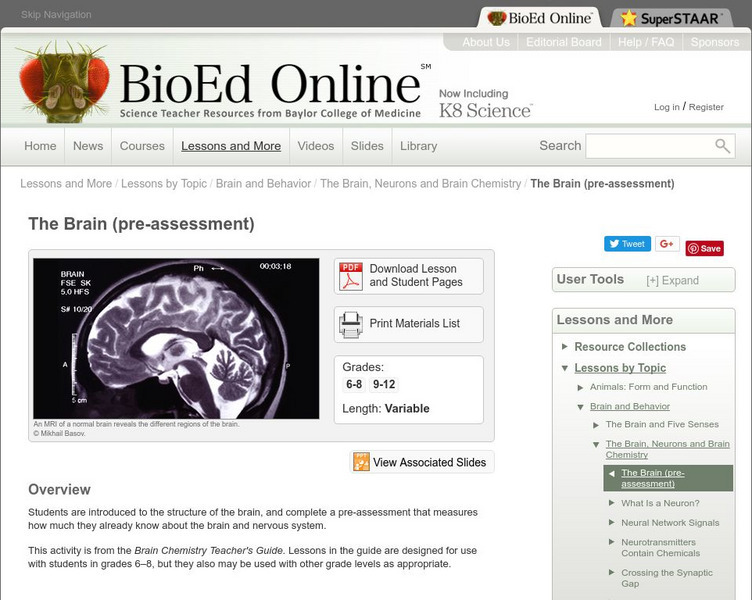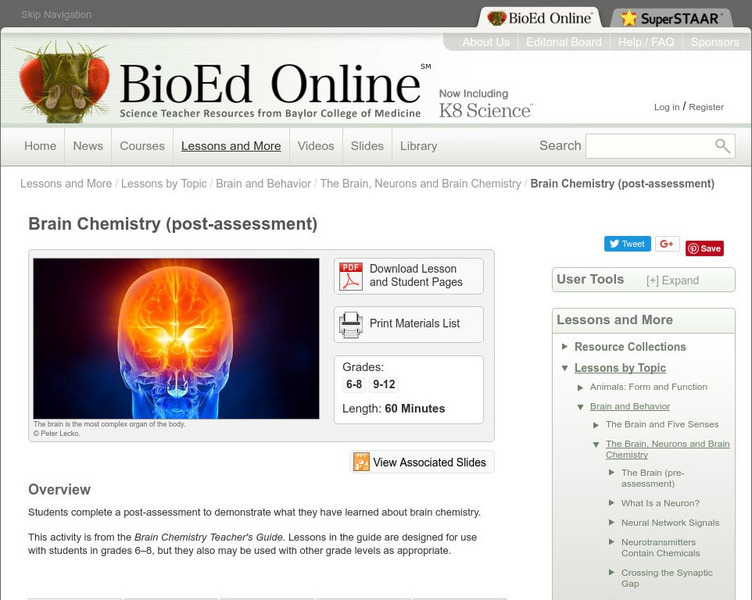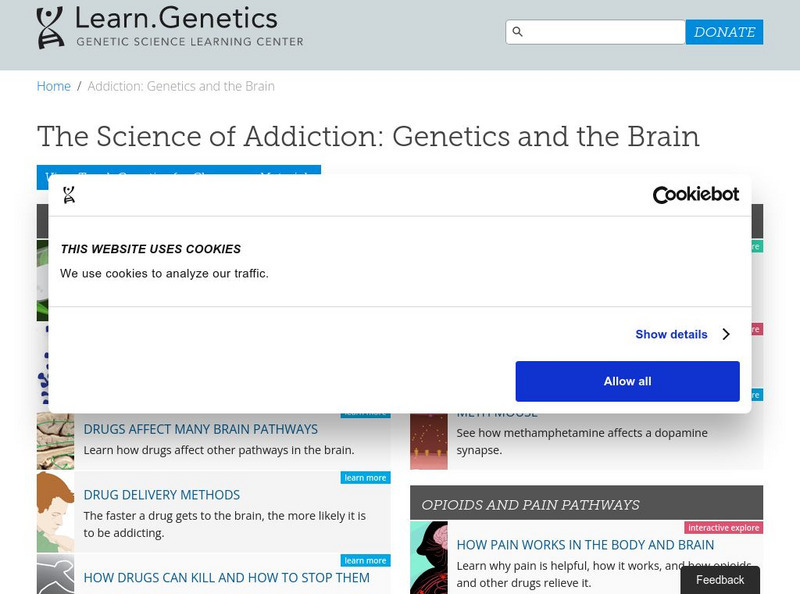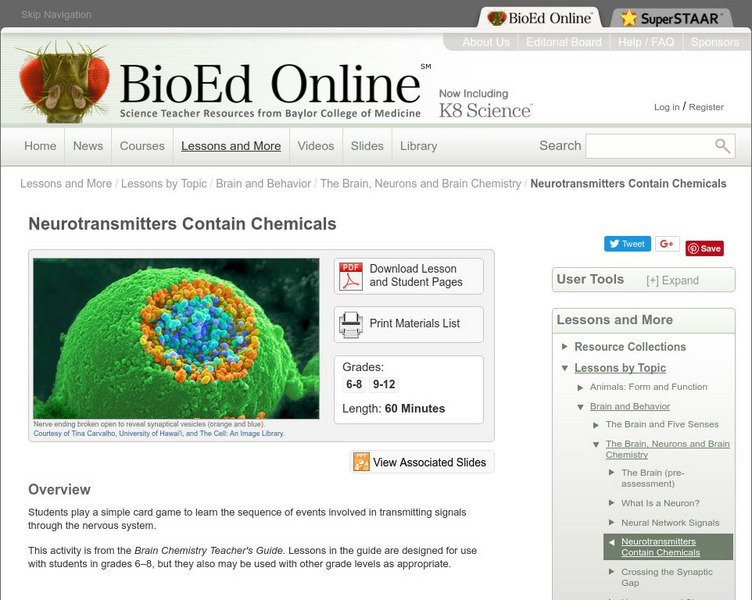Hi, what do you want to do?
Curated OER
Electricity and Food: From Glowing Pickles in Citrus Batteries
Fifth graders explore electrical concepts and host a guest speaker. This lesson sets up guidelines for students to follow when they have a guest speaker. Students are primed to become actively involved in a lecture or discussion, while...
Curated OER
Redefining Addiction
Students study about how addiction can have both physiological and behavioral effects. They synthesize their knowledge by creating a sensitivity training session for counselors working with teenagers who are addicted to drugs.
Curated OER
Narrowing a Topic Worksheet
In this narrowing a topic worksheet, students complete a chart in which they begin with a broad topic and narrow it down to a subtopic that interests them. Students then create a topic statement for their subtopic.
Curated OER
What can I do?
Young scholars identify feelings and explore positive ways to handle conflict. In this mental health instructional activity students discuss feelings and how to constructively handle them.
BioEd Online
Bio Ed Online: The Brain: Pre Assessment
The brain has unique physical characteristics and it is specialized into many different areas, each with a different job. Brain functions and abilities develop over time. Assess student's knowledge of the structure of the brain by having...
BioEd Online
Bio Ed Online: Food for the Brain
The brain needs many different kinds of raw materials from food and ecommended serving sizes are often smaller than the size actually served or the amounts people eat. In this lesson students are introduced to this concept by dissecting...
BioEd Online
Bio Ed Online: Brain Chemistry Post Assessment
The human brain is complex. Messages within the brain and the rest of the nervous system are conducted by cells called neurons. Drugs and other substances can interfere with or modify the transmission of messages between neurons. In this...
TED Talks
Ted: Ted Ed: Your Brain Is More Than a Bag of Chemicals
Modern psychiatric drugs treat the chemistry of the whole brain, but neurobiologist David Anderson believes in a more nuanced view of how the brain functions. He illuminates new research that could lead to targeted psychiatric...
BioEd Online
Bio Ed Online: Crossing the Synaptic Gap
Neurotransmitters can either stimulate the next neuron to send a signal or inhibit that neuron from sending a signal. Certain chemicals change the way signals are sent and received. In this lesson learners will understand this concept by...
TED Talks
Ted: Ted Ed: The Science of Attraction
Romantic chemistry is all about warm, gooey feelings that gush from the deepest depths of the heart right? Not quite. Actually, the real boss behind attraction is your brain, which runs through a very quick, very complex series of...
University of Utah
University of Utah: Genetic Science Learning Center: The New Science of Addiction
Multidisciplinary examination of the science of addiction attempts to unravel its complexities by considering genetics, brain chemistry, environmental risk factors, and related topics.
BioEd Online
Bio Ed Online: What Is a Neuron?
Messages within the brain and the rest of the nervous system are sent very rapidly. These messages are conducted by cells called neurons. Neurons are specialized to receive and transmit message and neurons are connected in networks. In...
BioEd Online
Bio Ed Online: Neural Network Signals
Nervous system messages are sent as electrical signals along the length of axons and dissolved salts are important for electrical signaling in cells. In this instructional activity learners are introduced to this concept by creating an...
BioEd Online
Bio Ed Online: Neurotransmitters Contain Chemicals
Nervous system signals are transmitted electrically along individual neurons, but neurons are separated from each other by a tiny gap. Chemical messengers called neurotransmitters cross the gap between neurons. Neurotransmitters fit into...


















